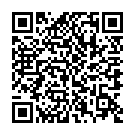|
|
|
| Module code: MST2.FMF |
|
|
3V+1P (4 hours per week) |
|
5 |
| Semester: 5 |
| Mandatory course: yes |
Language of instruction:
German |
Assessment:
Written exam 120 min.
[updated 06.11.2020]
|
MST2.FMF (P231-0042) Mechatronics and Sensor Technology, Bachelor, ASPO 01.10.2019
, semester 5, mandatory course
MST2.FMF (P231-0042) Mechatronics and Sensor Technology, Bachelor, ASPO 01.10.2020
, semester 5, mandatory course
|
60 class hours (= 45 clock hours) over a 15-week period.
The total student study time is 150 hours (equivalent to 5 ECTS credits).
There are therefore 105 hours available for class preparation and follow-up work and exam preparation.
|
Recommended prerequisites (modules):
MST2.DAS
MST2.DIF
[updated 12.04.2021]
|
Recommended as prerequisite for:
|
Module coordinator:
Prof. Dr.-Ing. John Heppe |
Lecturer: Prof. Dr.-Ing. John Heppe
[updated 01.10.2020]
|
Learning outcomes:
After successfully completing this course, students will be familiar with the most important manufacturing processes of DIN 8580 with special reference to precision engineering. They will also be familiar with technological features such as operating principles and process parameters. Students will be able to assess the application areas of the processes and materials. They will have extended their knowledge about mechanics. And thus, link that knowledge with the content discussed in the course.
Students will be familiar with the most important manufacturing processes in microtechnology, their fields of application and MEMS design examples. They will understand precision and microtechnical products and their manufacturing processes.
[updated 06.11.2020]
|
Module content:
Precision Engineering
1. Overview and classification
2. Primary forming processes, casting: Processes, materials and design rules, sintering
3. Forming manufacturing processes
4. Separating processes:
Machining with geometrically determined cutting edge (turning, milling, drilling)
Machining with geometrically indeterminate cutting edge (grinding)
5. Joining
Hard and soft soldering
Press and fusion welding processes, laser beam welding, resistance welding,
Microtechnology
1. Introduction: What makes "micro" different?
2. Micromechanical silicon pressure sensors, operating principle and designs
3. Microsystems: Acceleration and rotation rate sensors
Physical operating principles, designs and measurement technology
4. Necessary technologies for the production of microstructures
Silicon wafer, thermal oxidation
Coating technologies, PVD and CVD
Structuring and etching processes
5. Nanotechnology
Nanoscale metal matrix layers (granular metals) in sensor technology, examples from our own research
Laser micromachining with ultra-short laser pulses
[updated 06.11.2020]
|
Teaching methods/Media:
Lecture / slides as lecture notes
Preparation of a talk and handouts on a specific topic in groups of two,
Special teaching units with practical demonstrations at ZeMA (Zentrum für Mechatronik und Automatisierungstechnik),
Trip to a manufacturing plant,
Demonstration of CNC machines
[updated 06.11.2020]
|
Recommended or required reading:
Precision Engineering
- A. H. Fritz , G. Schulze, Fertigungstechnik, Springer Lehrbuch, also available as an e-book
- A. Risse, Fertigungsverfahren der Mechatronik, Feinwerk- und Präzisionsgerätetechnik, Springer Lehrbuch
- W. Krause, Fertigung in der Feinwerk- und Mikrotechnik, Hanser Verlag
- W. Krause, Grundlagen der Konstruktion, Hanser Verlag
- Tabellenbuch Metall und Werkstofftechnik für Metallberufe, Verlag Europa Lehrmittel
Microtechnology
- F. Völklein, T. Zetterer, Praxiswissen Mikrosystemtechnik, Vieweg Verlag
- T.M. Adams, R.A. Layton, Introductory MEMS, Springer Verlag
- Bosch, Sensoren im Kraftfahrzeug, Springer Verlag
- M. Glück, MEMS in der Mikrosystemtechnik, Teubner Verlag
[updated 06.11.2020]
|


